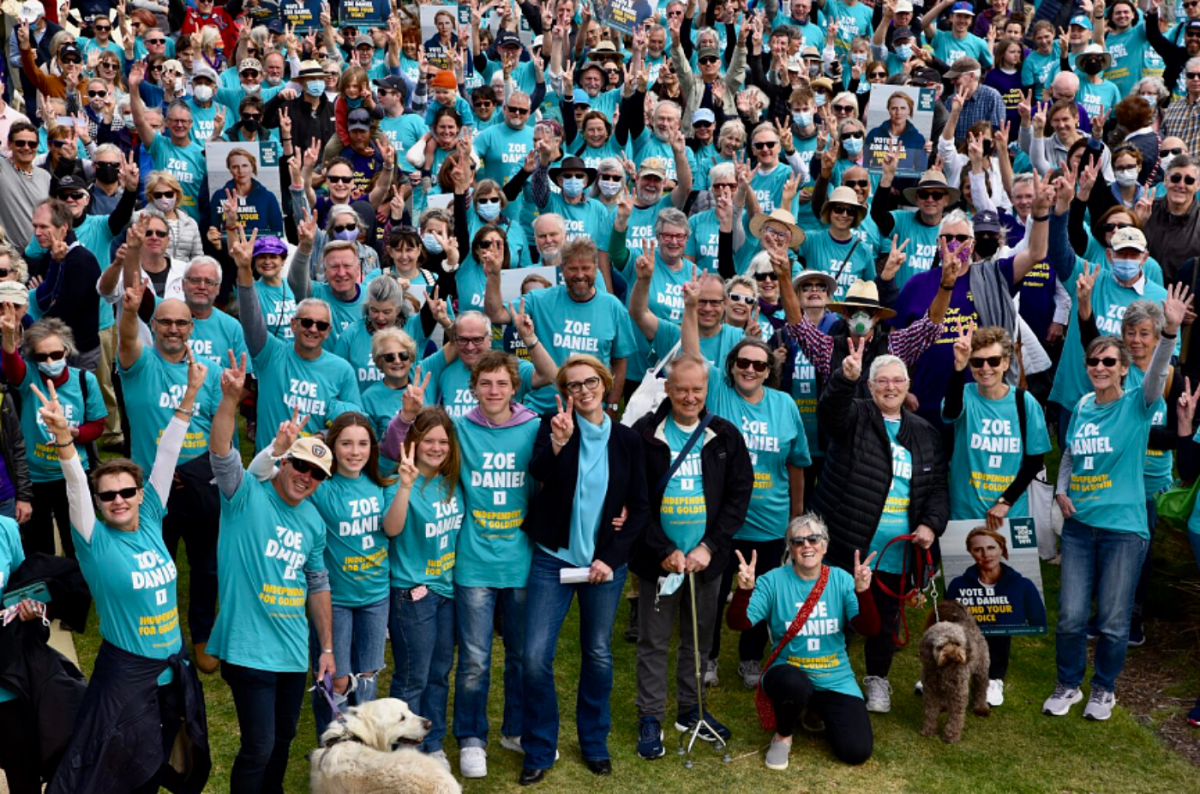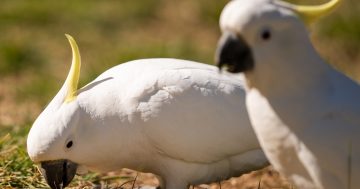
Teal is the word, the word that took Australians by storm at the last federal election when, with one stroke of their brush, the teal Independents swept into power. Photo: Australian National Dictionary Centre.
The Australian National Dictionary Centre needed to draw on no less than the last federal election when it came to naming the 2022 Word of the Year – teal.
Prior to the election, the word meant little more than a cross between green and blue – or a duck that dabbled. But after the colourful movement that swept Independent candidates into office for the first time, and as many standing politicians out of a job, teal became the word.
The dictionary centre, based at the Australian National University in Canberra, announced the 2022 Word of the Year on Wednesday, 23 November, defining it as: of or relating to an independent political candidate or politician who advocates for greater integrity and more action on addressing harmful climate change.
Senior researcher at the dictionary centre, Mark Gwynn, said the 2022 choice was relatively easy because of how prominent the word teal became during the election campaign and continued to be used widely and talked about.
“Teal is a word that has become associated with a new and significant movement in Australian politics, and one that is also linguistically productive,” Mr Gwynn said.
“It is used as a noun to refer to individual candidates or representatives, and as a modifier in numerous compounds including teal candidate, teal independent, teal revolution, teal seat, teal volcano and teal wave just to name a few.”
He said although the word originated from the colour that several of the high-profile candidates used in their promotional material, it quickly evolved into something much larger.
“The interesting aspect of this term is that many of the so-called teal candidates did not use the colour in their campaigns,” he said. “The colour came to represent a movement of independent and strong female voices taking on the establishment.”
Mr Gwynn said as the successful teals began to establish themselves in the new Parliament, it would be interesting to see how the term evolved or even continued.
He said two entries on the Word of the Year shortlist still reflected the social and cultural impacts of the COVID-19 pandemic. “But new cultural trends are also represented,” he said, “such as the mainstream discussion of `eshays’, and the impact of the economic crisis, with `shrinkflation’.”
The full 2022 Word of the Year shortlist includes:
- Cooker: a derogatory term for a person involved in protests against vaccine mandates, lockdowns and others perceived to be infringing on personal freedom;
- Eshay: a teenager or young man who is part of a group associated with anti-social behaviour and categorised by wearing a certain brand of clothing;
- Quiet quitting: not working beyond the hours and duties specified for a role;
- Shrinkflation: a reduction in the size, quantity or quality of a pre-packaged product while pricing remains the same or increases.


















